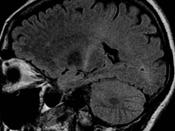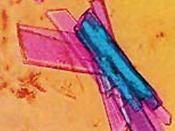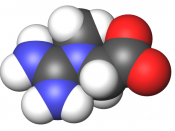What is Creatine?
Creatine is a type of amino acid (with the chemical formula: C4H11N3O3*H2O) that is naturally produced in liver, pancreas and kidney, which supplies energy to muscles. Creatine is also obtained orally by eating such foods like red meat, milk, fish, and is sold as tablet in health stores. Athletes, who want to increase muscular performance, generally use creatine. Recently, for treatment of Amyotrophic Lateral Sclerosis, usage of creatine has increased, because if creatine increases energy production, then it decreases muscle weakness or fatigue.
How does Creatine work?
To supply energy to the muscles, creatine maintains a sufficient level of ATP. Muscles' primary energy source for their contractions is ATP. If supplied continuously, it prolongs the fatigue of muscles.
How should Creatine be used?
Creatine can be found both in dust and tablet form and it can be taken orally. ALS patients are recommended to take 5g per day.
Doses over 20g per day are not recommended, because excessive amounts of creatine may cause kidney diseases for kidneys will have to work more than normal level in order to filter the unneeded portion of the creatine taken. In addition to this, while using creatine, person must take more fluid than normal to make the process of the kidneys easier.
What are possible risks and side effects of Creatine?
Dehydration: If enough fluid is not taken, it can cause dehydration.
Stomach upset: Creatine increases the acid level of stomach, there for causes some aches, which can sometimes become severe and can require doctor supervision. Intake of water can decrease these aches.
Increased body weight: It causes an increase in the body weight, but not because of muscle weight, because of water weight.
In the light of all these information, it can be concluded that for increasing...


